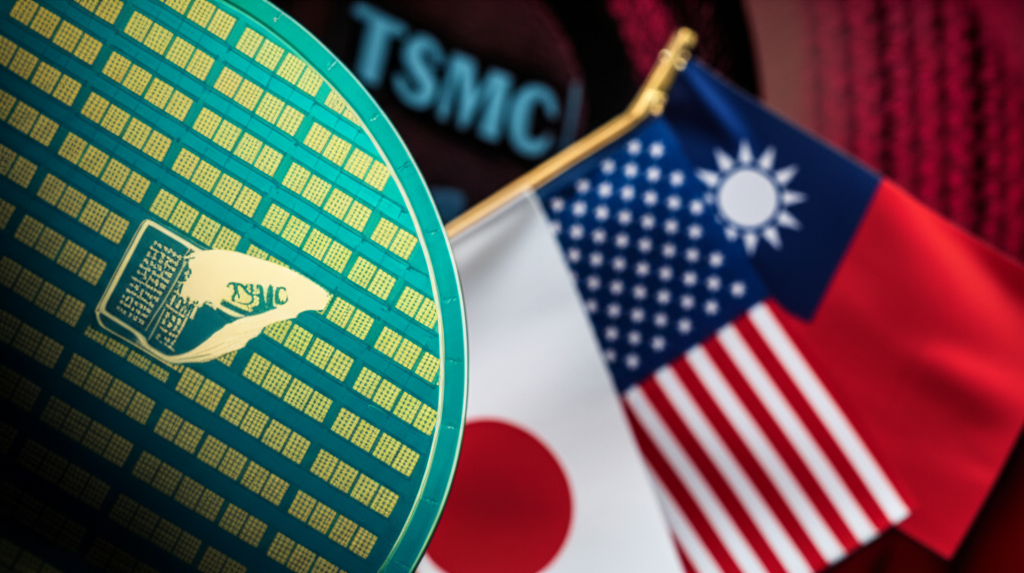Tariff Talks Advance, What Taiwan Semiconductor Can Deliver
The global economic landscape continues to be shaped by a complex interplay of trade negotiations and technological dependencies. Recent reports indicate an acceleration in tariff talks between major economic powers, signaling potential shifts in international commerce. At the heart of this intricate web lies Taiwan Semiconductor Manufacturing Company (TSMC), a colossus in the world of advanced chip manufacturing, whose capacity and strategic agility are increasingly under the spotlight amidst these evolving trade dynamics. For young adults navigating the complexities of finance and the broader economy, understanding this nexus between geopolitics, trade policy, and cutting-edge technology is paramount. The outcomes of these discussions could ripple through supply chains, impacting everything from smartphone prices to the future of artificial intelligence, with TSMC’s pivotal role determining the pace of global innovation.
The renewed vigor in tariff discussions primarily centers on efforts to rebalance trade relationships, address concerns over intellectual property, and secure critical supply chains. While specific details remain under wraps, the broader context points to ongoing strategic competition, particularly between the United States and China. Both nations are keenly aware of the strategic importance of semiconductors, which are the fundamental building blocks of modern technology. Tariffs, or the threat of them, serve as a potent tool in these negotiations, aimed at incentivizing domestic production, diversifying sourcing away from perceived risks, or gaining leverage in broader economic and security dialogues. Businesses globally are bracing for potential changes, adapting supply chain strategies and investment plans to mitigate risks and capitalize on new opportunities that may emerge from reconfigured trade routes. This environment often leads to higher operational costs, which can ultimately translate into increased consumer prices or a re-evaluation of where manufacturing capacity is best placed for future resilience.
It is within this volatile environment that TSMC’s role becomes critically important. As the world’s leading dedicated independent semiconductor foundry, TSMC manufactures the vast majority of the most advanced chips for a global clientele that includes tech giants like Apple, Nvidia, Qualcomm, and AMD. Its technological leadership, particularly in producing chips at the cutting edge (such as 3-nanometer and soon 2-nanometer nodes), gives it an almost unparalleled position in the global tech ecosystem. This unique standing means that any disruption to TSMC’s operations, or indeed, any strategic shift in its customer base or geographic footprint, has profound implications for the entire technology sector. “What Taiwan Semiconductor can deliver” therefore extends beyond just production volumes; it encompasses its ability to innovate rapidly, maintain stringent quality controls, and navigate increasingly complex geopolitical pressures. The company has already begun diversifying its manufacturing base, with significant investments in new fabs in Arizona, Japan, and Germany – a move partly driven by customer demand for supply chain resilience and government incentives, but also a strategic response to the geopolitical imperative of reducing concentrated risk. These initiatives underscore TSMC’s commitment to delivering not just chips, but also a resilient and globally distributed manufacturing capability that can withstand future economic and political headwinds.
Looking ahead, the intertwined fates of global trade policy and semiconductor leadership will continue to shape the technological and economic landscape. The advancement of tariff talks signals a persistent effort by nations to assert control over critical industries and supply chains. For TSMC, this means balancing its global business model with the increasing demands for national self-sufficiency and supply chain security from various governments. Its strategic investments abroad are a testament to its adaptive capabilities, aiming to deliver not just cutting-edge technology, but also a more diversified and robust manufacturing network. The continued success of TSMC in delivering next-generation chips will be a key determinant in the pace of global technological advancement, influencing everything from the development of AI to the rollout of 5G infrastructure, and ultimately, the accessibility and affordability of the tech products that define our daily lives. The decisions made in tariff negotiations, therefore, are not just about trade balances; they are fundamentally about shaping the future of global innovation and economic power.
—





